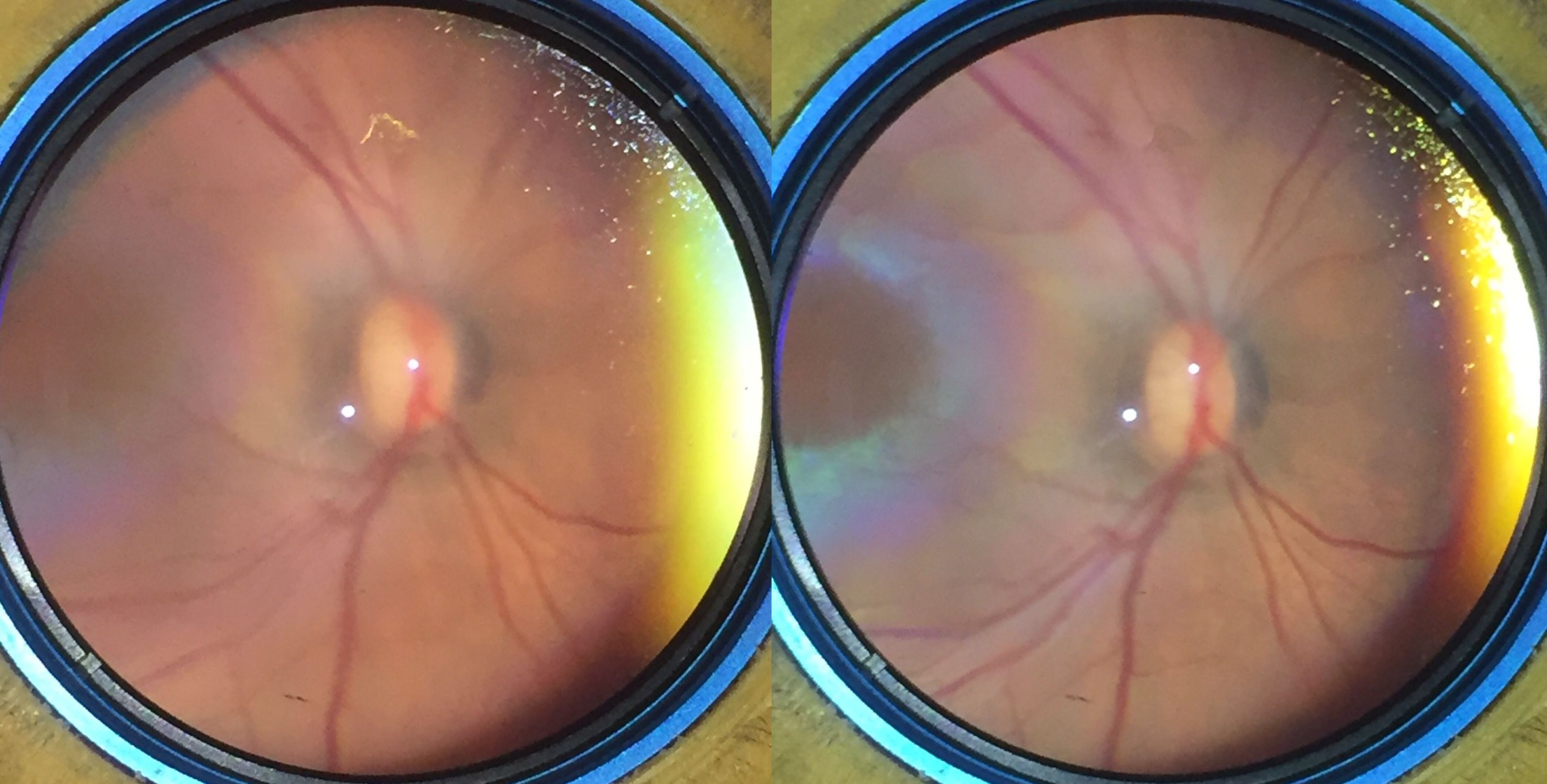Monday Poster Session
Category: Liver
P3978 - Zinc and Vitamin a Interdependence in Alcoholic Cirrhosis: A Case of Refractory Night Blindness
Monday, October 27, 2025
10:30 AM - 4:00 PM PDT
Location: Exhibit Hall

Sarthak Sharma, MBBS (he/him/his)
Government Medical College, Jammu
Jammu, Jammu and Kashmir, India
Presenting Author(s)
Award: ACG Presidential Poster Award
Sarthak Sharma, MBBS1, Sourav Sudan, MBBS2, Arashdeep Singh Singh, MBBS3, Shahdil Khusroo, 4
1Government Medical College, Jammu, Jammu, Jammu and Kashmir, India; 2St. Vincent's Hospital, Worcester, MA; 3Government Medical College and Hospital, Amritsar, Punjab, India; 4BHARAT RATNA LATE SHRI ATAL BIHARI VAJPAYEE MEMORIAL MEDICAL COLLEGE , RAJNANDGAON, CHHATTISGARH, Rajnandgaon, Chhattisgarh, India
Introduction: Night blindness (nyctalopia) commonly reflects vitamin A deficiency, especially in alcoholic cirrhosis, where up to 50% of patients are deficient. Zinc is a critical cofactor for retinol‐binding protein (RBP) synthesis and for retinol dehydrogenase, and zinc deficiency, which is seen in roughly 70% of cirrhotic patients, can impair vitamin A mobilization and phototransduction. We describe a patient whose nyctalopia resolved only after correcting both deficiencies.
Case Description/
Methods: A 45-year-old man with decompensated alcoholic cirrhosis presented with three weeks of progressive difficulty seeing in dim light. He had no corneal lesions, a normal Schirmer’s test, an intact red reflex, and no macular pathology on fundus imaging. Baseline liver therapy included diuretics, lactulose, and vitamin B₁₂; alcohol abstinence was maintained. Serum retinol was severely low (< 0.02 mg/L), so oral vitamin A (25,000 IU/day) was initiated. After four weeks, nyctalopia persisted and impacted activities of daily living. Albumin was 3.0 g/dL which was not low enough to explain the nyctalopia. A review of literature suggested to suspect zinc deficiency. Serum zinc levels were ordered, and they measured 35.9 µg/dL (normal 60–120). Zinc acetate 50 mg thrice daily was added. Two weeks later, the patient reported complete resolution of night blindness; zinc was tapered to 20 mg/day for three months.
Discussion: Dietary β-carotene and retinol absorption, hepatic storage (as retinyl esters in stellate cells), and release via RBP/pre-albumin complexes all depend on zinc. Zinc deficiency impairs RBP synthesis and retinol dehydrogenase activity, reducing delivery of 11‑cis‑retinal to photoreceptors. In cirrhosis, malnutrition, decreased RBP/pre‑albumin synthesis, and alcohol’s direct effects on zinc homeostasis compound vitamin A deficiency. Our case underscores the interplay of zinc and vitamin A metabolism in alcohol‑related liver disease and highlights the need to assess zinc status in cirrhotic patients with persistent nyctalopia despite vitamin A repletion.

Figure: Normal Fundus (Left & Right) Suggesting XN Stage Vitamin A Deficiency and Ruling out XF Stage

Figure: Lab Investigations of the patient
Disclosures:
Sarthak Sharma indicated no relevant financial relationships.
Sourav Sudan indicated no relevant financial relationships.
Arashdeep Singh Singh indicated no relevant financial relationships.
Shahdil Khusroo indicated no relevant financial relationships.
Sarthak Sharma, MBBS1, Sourav Sudan, MBBS2, Arashdeep Singh Singh, MBBS3, Shahdil Khusroo, 4. P3978 - Zinc and Vitamin a Interdependence in Alcoholic Cirrhosis: A Case of Refractory Night Blindness, ACG 2025 Annual Scientific Meeting Abstracts. Phoenix, AZ: American College of Gastroenterology.
Sarthak Sharma, MBBS1, Sourav Sudan, MBBS2, Arashdeep Singh Singh, MBBS3, Shahdil Khusroo, 4
1Government Medical College, Jammu, Jammu, Jammu and Kashmir, India; 2St. Vincent's Hospital, Worcester, MA; 3Government Medical College and Hospital, Amritsar, Punjab, India; 4BHARAT RATNA LATE SHRI ATAL BIHARI VAJPAYEE MEMORIAL MEDICAL COLLEGE , RAJNANDGAON, CHHATTISGARH, Rajnandgaon, Chhattisgarh, India
Introduction: Night blindness (nyctalopia) commonly reflects vitamin A deficiency, especially in alcoholic cirrhosis, where up to 50% of patients are deficient. Zinc is a critical cofactor for retinol‐binding protein (RBP) synthesis and for retinol dehydrogenase, and zinc deficiency, which is seen in roughly 70% of cirrhotic patients, can impair vitamin A mobilization and phototransduction. We describe a patient whose nyctalopia resolved only after correcting both deficiencies.
Case Description/
Methods: A 45-year-old man with decompensated alcoholic cirrhosis presented with three weeks of progressive difficulty seeing in dim light. He had no corneal lesions, a normal Schirmer’s test, an intact red reflex, and no macular pathology on fundus imaging. Baseline liver therapy included diuretics, lactulose, and vitamin B₁₂; alcohol abstinence was maintained. Serum retinol was severely low (< 0.02 mg/L), so oral vitamin A (25,000 IU/day) was initiated. After four weeks, nyctalopia persisted and impacted activities of daily living. Albumin was 3.0 g/dL which was not low enough to explain the nyctalopia. A review of literature suggested to suspect zinc deficiency. Serum zinc levels were ordered, and they measured 35.9 µg/dL (normal 60–120). Zinc acetate 50 mg thrice daily was added. Two weeks later, the patient reported complete resolution of night blindness; zinc was tapered to 20 mg/day for three months.
Discussion: Dietary β-carotene and retinol absorption, hepatic storage (as retinyl esters in stellate cells), and release via RBP/pre-albumin complexes all depend on zinc. Zinc deficiency impairs RBP synthesis and retinol dehydrogenase activity, reducing delivery of 11‑cis‑retinal to photoreceptors. In cirrhosis, malnutrition, decreased RBP/pre‑albumin synthesis, and alcohol’s direct effects on zinc homeostasis compound vitamin A deficiency. Our case underscores the interplay of zinc and vitamin A metabolism in alcohol‑related liver disease and highlights the need to assess zinc status in cirrhotic patients with persistent nyctalopia despite vitamin A repletion.

Figure: Normal Fundus (Left & Right) Suggesting XN Stage Vitamin A Deficiency and Ruling out XF Stage

Figure: Lab Investigations of the patient
Disclosures:
Sarthak Sharma indicated no relevant financial relationships.
Sourav Sudan indicated no relevant financial relationships.
Arashdeep Singh Singh indicated no relevant financial relationships.
Shahdil Khusroo indicated no relevant financial relationships.
Sarthak Sharma, MBBS1, Sourav Sudan, MBBS2, Arashdeep Singh Singh, MBBS3, Shahdil Khusroo, 4. P3978 - Zinc and Vitamin a Interdependence in Alcoholic Cirrhosis: A Case of Refractory Night Blindness, ACG 2025 Annual Scientific Meeting Abstracts. Phoenix, AZ: American College of Gastroenterology.

